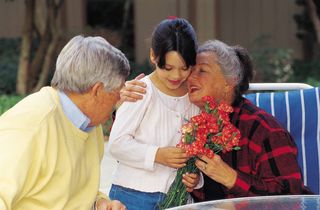 Given the widespread health, legal, social and economic implications of elder abuse, the Elder Justice Roadmap Project sought the input of experts and stakeholders from across the country in order to develop a strategic resource — by the field and for the field — to combat elder abuse, neglect and financial exploitation.
Given the widespread health, legal, social and economic implications of elder abuse, the Elder Justice Roadmap Project sought the input of experts and stakeholders from across the country in order to develop a strategic resource — by the field and for the field — to combat elder abuse, neglect and financial exploitation.
Impacting about five million Americans each year, elder abuse is a crime that can include physical, sexual, and psychological abuse, neglect, abandonment, and financial exploitation. This abuse results in thousands of cases of illness, injury and suffering for elderly victims, their loved ones and their caregivers. It is tragic that so few cases are reported to the authorities. According to some statistics, only about one in 24 is reported. With Baby Boomers retiring and this widespread impact of elder abuse, the Elder Justice Roadmap Project was initiated to collect the thoughts of experts and stakeholders from across the nation. Their aim was to develop a strategic resource to fight elder abuse, neglect and financial exploitation. The project's report identifies and prioritizes actions that direct service providers, educators, and researchers can take to benefit older adults in this situation. And as its name implies, it provides a roadmap for strategic investment and engagement by policymakers in both the public and private sectors to advance these efforts to prevent and combat elder abuse.
The Elder Justice Roadmap Project’s publication came about after President Obama pledged to eliminate the victimization of older Americans. On June 11, he proclaimed World Elder Abuse Awareness Day and declared that the government must improve the criminal justice response and work harder to ensure all Americans have the “right to enjoy their retirement years with a basic sense of security.”
 "In America" discusses elder law and the way that legal standards and details are changing over time.
"In America" discusses elder law and the way that legal standards and details are changing over time. Houston Estate Planning and Elder Law Attorney Blog
Houston Estate Planning and Elder Law Attorney Blog









